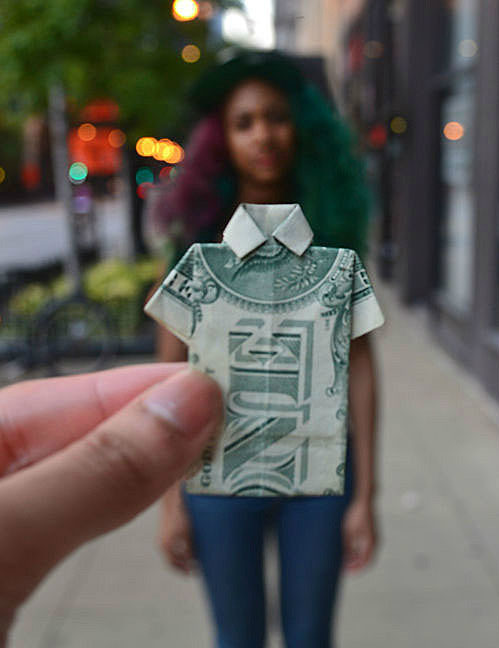This is literally how I feel. Sure, I can look the part, I can act the part,
but in no way am I one of the mean, green environmental machines who commonly
traverse the good old University of California, Davis. I think that many people do indeed flaunt
their way through life like this – to do positive things for the sake of keeping
an image, or continue a following. For
me, that was my intention – or should I say lack thereof. As time wore on, I began recycling and saving
out of habit, never having had much conscious awareness of whether or not that
minimally soiled napkin should have been put into the recycling bin. Green is in among the kids these days, and I
followed to keep up with the times. And
hey, I’m a sucker for new trends. But
here’s my question: Would this even be even near the challenge that so many
moan about?
No spending on newfangled thingamabobs for an entire
month? Sure, I can do that – I’ve been
doing it all my life. I grew up in not
so favorable conditions, and I got used to minimal spending. It’s like growing up within the environment
of the indigenous Hmongs. Since one has
never experienced anything better, it becomes the paradigm – only the
privileged see it as being depriving.
When you think about it, you have to waste so much to spend money on new
things. Consumerism takes effort – you have
to fangirl over it, induce self-amnesia from reminders of your massive student debt,
take the car on a gas-wasting spree, find the darned thing on a shelf/rack, and
lastly, crave more. Or maybe this is
just some lame justification for being lazy.
I don’t know. I feel like I’m
making enough sense, though.
Thank goodness that I don’t live in China anymore, though,
because to survive out in the urban, one would almost have no choice but to
spend on things – the newer, the better.
There has been something I have been scrutinizing lately, and that is
the role of appearance in Chinese –and many other Asian – societies. The fact that appearances are a crucial part
of societal acceptance in Asian countries to the point where “clothing is used
to legitimize the wearer’s position in symbolic identifications with traditions
already powerful in their particular society” (Jones) gives a whole new significance to 'surface beauty'. Being fashionable
equals social standing, which is something that does not permeate quite as deeply
in the United States.
Now, the clothes on my back – and the reason I look socially
acceptable - are all thanks to my fashion-crazed head gynecologist of an aunt,
who has been funneling me all of the clothes that are way too large for her because
of her recent weight loss (and don’t let me get started on the thin trend that’s
so prevalent in the majority of Asian countries these days – okay, I will –
Western media was the main trigger for this particular trend (Jung)). She would still occasionally ask me to send pictures
of how my style has progressed (ha). To
get back on point - the obsession of Chinese girls with appearance is fascinating,
because when I went to China this summer, everybody looked simply fabulous and
I could hardly judge any of them in a negative light. This just reinforces the theory that fashion
is an indicator of class, according to Kawamura's definition for fashion. In this
particular case, fashion is an emulation of what one wants to be and not
necessarily what one actually is.
Posers? I do veer towards that
opinion. Or perhaps that's too much of a Western bias.
To be continued,
Jing Mai
Sources:
Inside Source: Jones, Carla. Re-orienting Fashion. United Kingdom: Berg, 2003. pp. 24. Print.


No comments:
Post a Comment